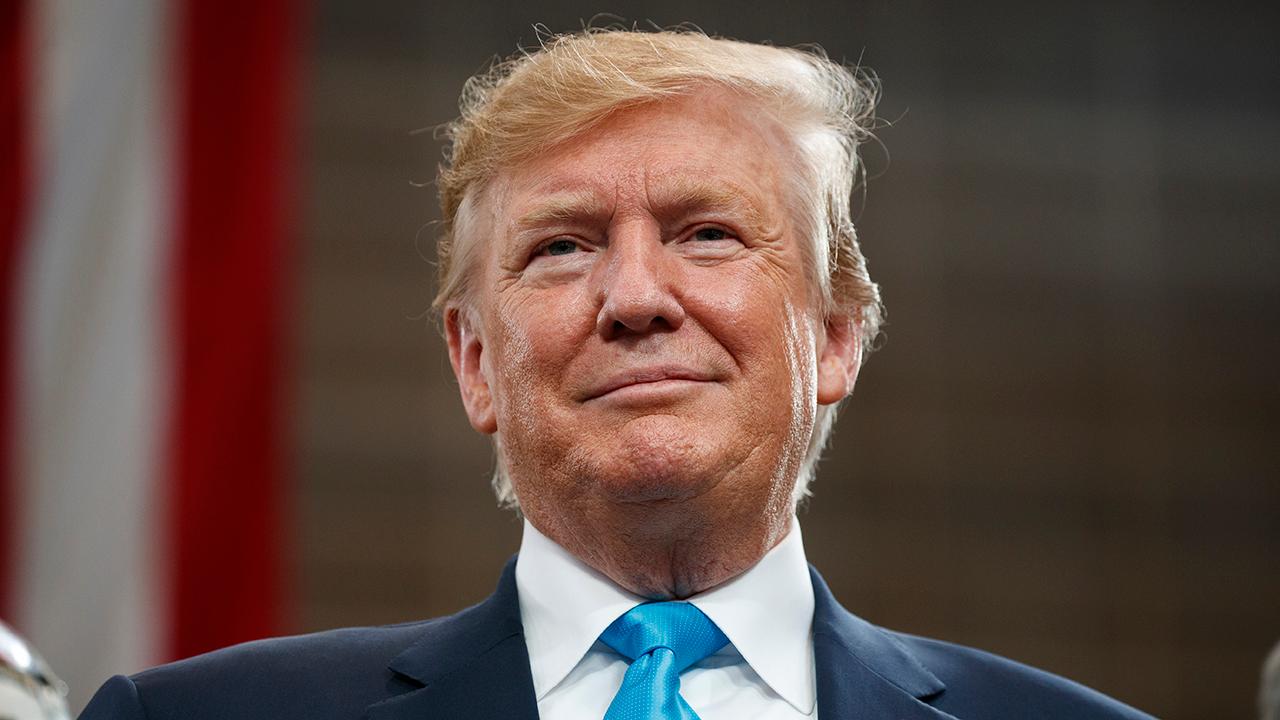Trump's steel tariffs stand in way of next US shale revolution
America is already the world's top crude oil producer. And soon, it could surpass Saudi Arabia to become the top crude exporter, according to a recent report from the International Energy Agency.
President Trump deserves part of the credit. His tax and regulatory policies have put America on the path to global energy dominance and laid the foundation for what IEA's executive director has called the "second wave" of America's shale revolution.
Only one thing stands in the way -- the Trump administration's steel tariffs.
Last year, the administration started taxing foreign steel to protect U.S. steel mills from competition. These tariffs may have delivered some marginal benefits to domestic steel companies, but they've raised costs on firms in nearly every other industry, especially the oil and gas sector.
Keeping these tariffs in place, or replacing them with a quota system -- as some have suggested -- would impede energy production and weaken the economy. President Trump can cement his legacy and make America the world's most dominant oil exporter by scrapping the steel tariffs.
Sen. Chuck Grassley, R-Iowa, warned this week in a Wall Street Journal op ed that legislative approval for the United States–Mexico–Canada Agreement (USMCA) — the replacement deal for Nafta — won't happen as long as these tariffs are in place.
“These levies are a tax on Americans … If these tariffs aren’t lifted, USMCA is dead. There is no appetite in Congress to debate USMCA with these tariffs in place,” Grassley wrote.
Pipeline projects in jeopardy
The 25 percent tariff on steel has raised the cost of pumping all this oil. Over the last year, the price of steel tubes used to line wells in the Permian Basin, a gargantuan oil field in west Texas and New Mexico, spiked over 30 percent.
Tariffs have also raised the cost of transporting this oil from wellheads to refineries and shipping terminals. Companies depend on a sprawling, and ever-expanding, network of pipelines to transport this fuel. Almost 80 percent of steel used in oil pipelines is imported.
Pipeline companies often don't have the option of "buying American," since U.S. steel mills don't make some of the specialty parts required for oil pipelines.
Consider a 500-mile pipeline project in the Permian Basin, which is currently facing a pipeline shortage. For this particular project, pipeline company Plains All American needs specialty steel that only a Greek mill can provide.
Plains petitioned the government for a steel tariff exemption, but was denied last year. Though the project is moving forward, the company's CEO says the tariffs have raised the project's price tag by around $40 million.
Unfortunately, Plains' pipeline isn't the only project in jeopardy. As long as steel tariffs are in place, the average pipeline will cost an additional $76 million to build, according to global consulting firm ICF.
These higher costs may discourage companies from constructing new pipelines, thereby impeding energy firms' ability to transport oil to market.
Some members of the administration have floated the idea of replacing tariffs with a quota system, which would enable firms to import a limited quantity of steel tariff-free. That might sound like an improvement -- but for energy companies, it'd make a bad situation even worse.
While tariffs allow energy firms to buy steel, albeit at a higher cost, quotas impose hard caps on imports. Once the quota is reached, firms wouldn't be able to import the pipeline parts they need at any price. Pipeline projects could be canceled en masse or put on hold for years.
Workers would suffer immensely. The average pipeline project's construction phase funnels over $1 billion to workers. And "approximately 75 percent of pipeline project spending goes to American workers and products," according to the Association of Oil Pipe Lines.
America's energy renaissance has revitalized the economy. Oil and gas firms support over 10 million American jobs and add over $1 trillion to GDP. The industry is on track to create nearly 2 million new jobs by 2035.
However, that job growth hinges on smart policies from our leaders. President Trump has done wonders for the economy with his tax cuts and light regulatory touch. But to unleash the full potential of the energy industry, he'll need to scrap steel tariffs.
Drew Johnson is a senior fellow at the National Center for Public Policy Research.




















